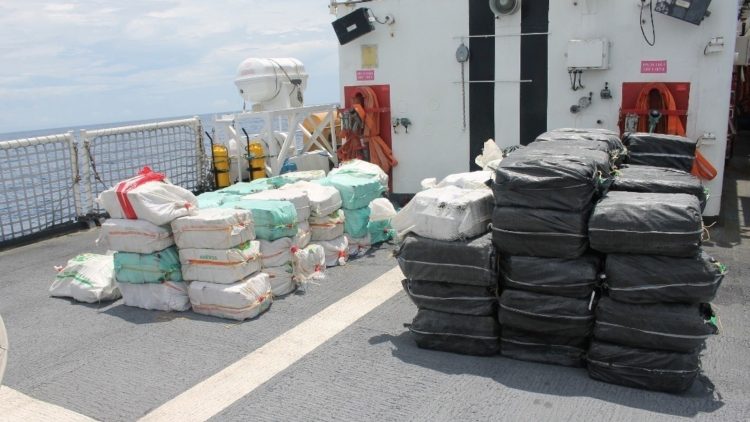We all know about the blimps that China flew unchallenged across the United States in 2023, and apparently, this was not an isolated incident. It had happened before, and it was hidden from the American public. Sadly, not many people around the United States are aware that TODAY,
- China-CCP owns 384,000 acres in agriculture-intensive areas in the United States;
- China has over 300,000 “students” in the top colleges and universities in the US;
- China-CCP has taken control over most of the Chinese language media in the US, and it has taken control of most US university associations for students of Chinese heritage;
- The Chinese-owned app TikTok, besides being a propaganda and spying tool, is also a social reengineering system;
- And finally, all the fentanyl and fentanyl-related substances come from China.
This means that China can now weaponize against us:
- Our seeds
- Our young adults
- Our migrants
- Our children
- And our human weaknesses, like the US addiction to cocaine and fentanyl.
Since 2021, the US has abandoned its full support for the war on drugs and eased its demands on Latin American countries to combat cartels and curtail drug trafficking. This void in leadership has left significant repercussions. As a misstep in foreign policy, the United States not only propped up leftist regimes in Latin America but also allowed them to dismantle the counter-narcotic capabilities we had built together, including specialized military and police units, intelligence analysis and collection operations, and programs for eradicating illicit crops. Alarmingly, we refrained from protesting as these regimes pushed for drug lords and Narcos to be released and pardoned to avoid extradition to the US.
Within the intelligence services, military, and police forces of Latin America, it is whispered that this void allowed China-based criminal organizations, Latin American transnational criminal networks, and the narco-left to forge a tacit and dangerous alliance across the Hemisphere. This alliance strategically weaponizes the drug trade and human trafficking against the United States. Consequently, since 2021, the cocaine trade in the US alone has grown into a staggering $150 billion black market industry. The Tren de Aragua, a Venezuelan criminal organization that did not exist in 2021, now operates in 16 states across the US, while the illegal immigration population has quadrupled over the past four years, surging from 2.4 million in 2020 to somewhere between 8 and 11 million in 2024, according to CBP. Coinciding with these trends, homicide rates in the US have risen by approximately 30 percent since 2020, as reported by the Council on Criminal Justice. These developments underscore the dire consequences of neglecting a robust and coordinated approach to countering these multifaceted threats.
Bringing the Fight to the Cartels
To dismantle this unholy alliance, the United States doesn’t need to reinvent the wheel but rather tap into the expertise and proven strategies that have yielded tangible successes against cartels in recent years. For instance, between 2015 and 2021, the US intelligence community and the US Department of Defense achieved significant victories in countries like Guatemala. A strategic, aggressive, and cooperative approach—led by the CIA station—resulted in world record-breaking cocaine seizures and interdictions, as well as the detection and dismantling of the first and most advanced cocaine production labs outside of Colombia. Similarly, between 2010 and 2022, Colombia continued to accumulate successes against cartels and coca production, largely due to the support provided by US intelligence agencies and the Department of Defense in empowering and assisting local military, intelligence, and police units. Ironically, these successes were achieved despite the wasteful law enforcement programs funded by the US State Department in these countries. These programs, often with budgets 20 times larger than those allocated to US intelligence and military efforts, were squandered on political pet projects and woke social justice initiatives, yielding questionable results, if any at all.

Political correctness will undoubtedly criticize and likely attempt to block any direct-action strategy aimed at confronting drug cartels and transnational crime organizations. However, it is critical to understand that these organizations, with their vast and nearly limitless resources, operate in a brutal, violent, and ruthless manner. They only understand force and intimidation, and their operations thrive in an environment where lawlessness reigns. If there is a genuine commitment by the new US Administration to combat these groups, it will require a fundamental shift in approach. To be successful, we must enable our military and intelligence agencies to fully utilize their capabilities—taking the gloves off and engaging the cartels directly. This means confronting them on their own turf and across the entire Western Hemisphere. A strategic, no-holds-barred approach is necessary to dismantle these powerful and deeply entrenched criminal networks.
To truly defeat them, we must be willing to operate in the shadows, take decisive action, and disrupt their operations wherever they exist. Only through relentless pressure and unwavering resolve can we hope to reclaim control and ensure the safety and security of the Americas.










COMMENTS